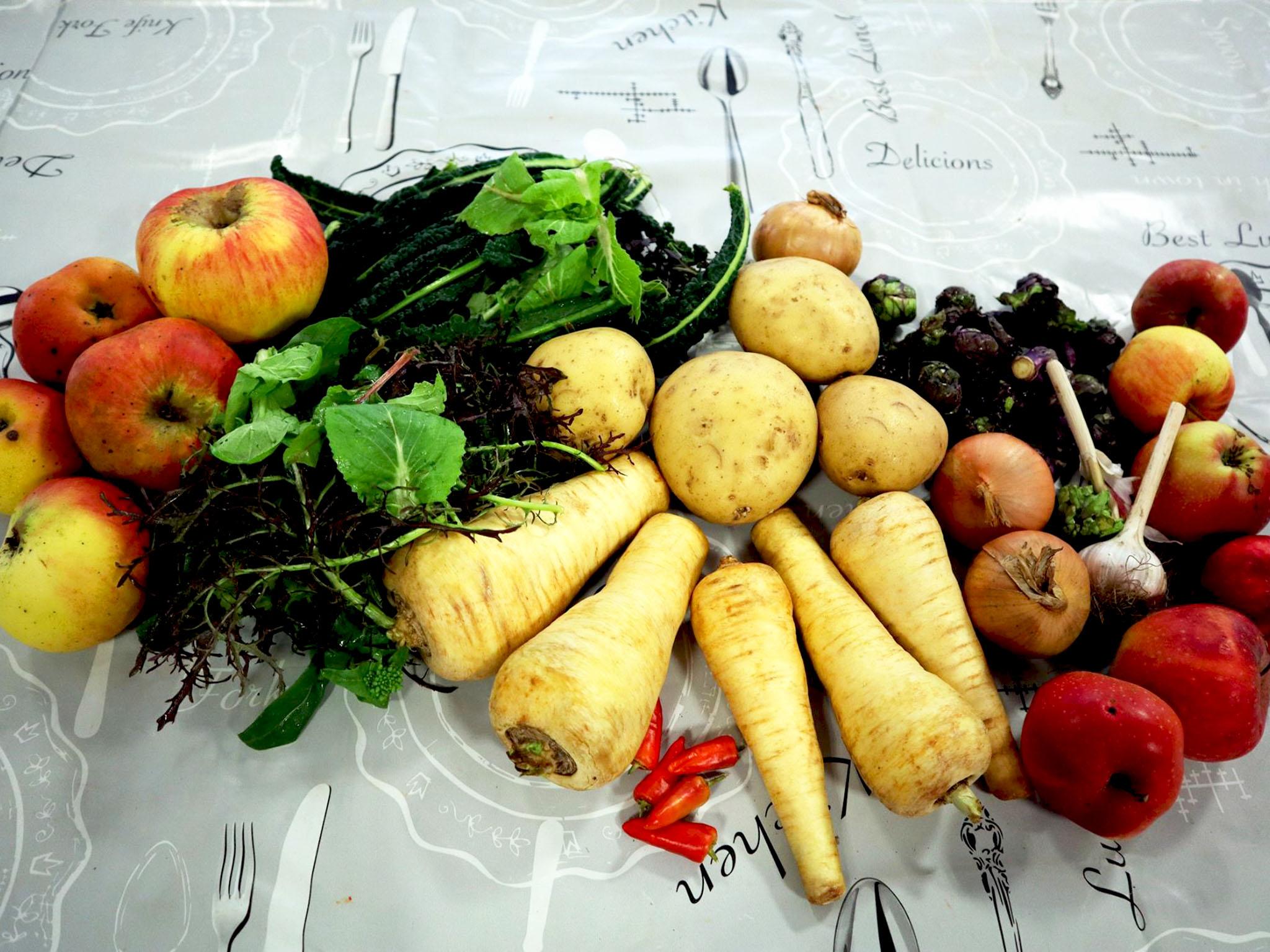‘We don’t need medication, we need this’: how The Larder co-operative is improving lives with food in Preston
Hazel Sheffield visits a social enterprise that connects local growers with businesses in a fightback against food poverty

Nike Sewell has measured out her life in meals. The school dinners at Grafton Primary School in north London where she grew up the daughter of Caribbean migrants. The best cuts saved for her by the local fish and chip shop. The cooking lessons with her mother, a trained chef, who she would later nourish with homemade courgette and pineapple cakes when she became too old to go alone to the kitchen.
But as a 63-year-old in Preston, Lancashire, living off benefits, she is less likely to eat healthily than women her age in other parts of the UK, and more likely to die in her sixties than most of the rest of the country. Sewell prefers to shop at Lidl, the budget German supermarket in town, but her benefits don’t always stretch to fruit and vegetables.
For almost a year, Sewell has been coming to a cooking class run by The Larder (Lancashire and Region Dietary Education Resource, a food co-operative in Preston). The seeds of the co-operative were sown five years ago, when Kay Johnson, a trained chef and nutritionist, was commissioned to develop a sustainable food charter for Lancashire. Over time, she began to imagine a food hub with an education element, a cafe and a catering arm to supply to Preston businesses.
Subscribe to Independent Premium to bookmark this article
Want to bookmark your favourite articles and stories to read or reference later? Start your Independent Premium subscription today.
Join our commenting forum
Join thought-provoking conversations, follow other Independent readers and see their replies